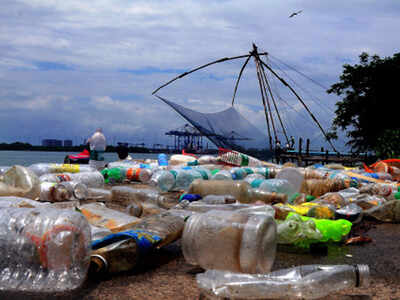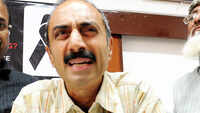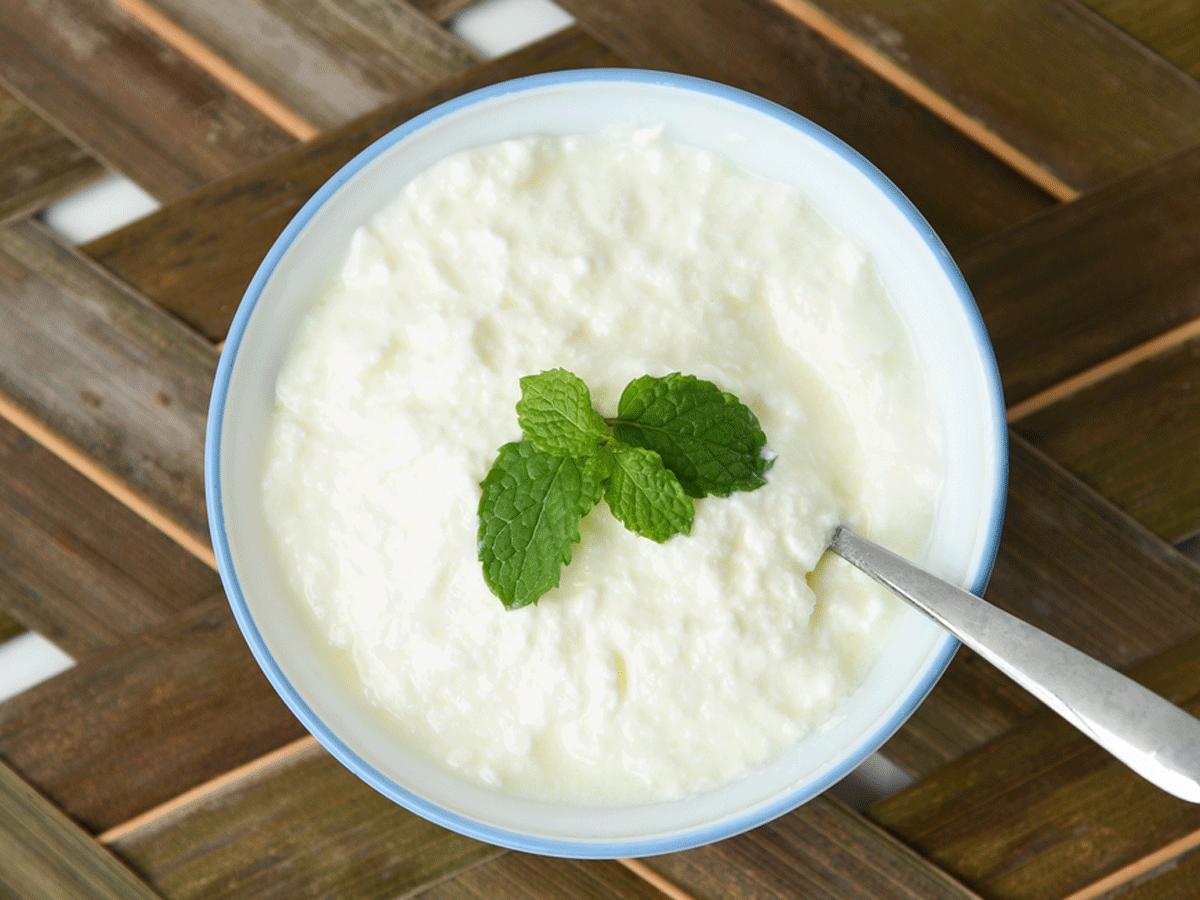
THIRUVANANTHAPURAM: If ever the state cleans up its coastal area, it will have to remove roughly 1,057 tonnes of plastic litter, showed a recent study conducted by environmental NGO Thanal. The study on plastic litter along Kerala coast found that single-use plastic posed a threat not just to cities and towns but also the coast.
The study report, released in June, covered 59 sample sites in coastal areas of seven districts. It found that single use plastic accounted for 53% of plastic litter on beaches whereas multi-use materials stood next at 22%of the plastic waste in coastal areas.
Food & snacks, home/personal care, tobacco products, utilities and plastic waste from medical care activities were considered as single-use plastics, while fishing equipment and plastic waste from construction activities were considered as multi-use plastics.
Of the single-use lot, food & snacks is the major contributor of plastic waste, which raises concerns over the quantity of waste left on the beach by visitors. The state’s aggressive campaign for green protocol seems to have had little impact as the number of plastic carry bags stood at 85.54 lakh pieces. The study found that carry bags are finding its way into fragile environmental zones. Lack of bins was another major problem.
A senior pollution control board (PCB) official said that solid waste management rules (2016) said that vendors must have bins to collect waste generated from their business and then deposit in storage depots as notified by the local body. “Absence of bins has been a major problem on beaches in the state. People and vendors just throw the waste around. Plastic never undergoes degradation, it gets broken into nano particles over the years or will be washed up by the sea. This raises far greater concerns as it may enter the food chain,” he said.
The study spanning six months was done by a five-member team of Thanal who also prepared litter indices in terms of number and weight of plastic that was found along the coast. It also pointed at a bigger challenge: undesignated plastic, i.e. litter that remained on beach for a long time that is impossible to categorize.
Withering of plastics on the beach made it impossible to identify the origin/type/polymer on inspection. “Identifying the type was a major challenge as it had remained there for so long. This is one of the biggest contributors of plastic litter along Kerala coast,” said Thanal’s deputy programme officer Sujith Surendran, also a member of the team.
Every square metre of beach in the state has 10.31g of plastic waste. The team took samples of plastic litter from 59 locations at regular intervals of 10km. At every location, litter was collected between the shoreline and first line of vegetation/built-up land. District-wise litter index was calculated and Malappuram topped the list as most-littered while Alappuzha was the least-littered one.
Programme coordinator Thanal Nikhilesh Paliath, who was a member of the study team, said monsoon brought more challenges as unremoved plastic litter would mix with the sea, endangering marine ecosystem.
Most sample locations had rural residential settlement and fishing activity which justified the presence of consumer products and fishing-related material in plastic litter. It was also observed that portions of beach – adjacent to residential dwellings – had higher concentration of plastic litter.
“Coastal belt is a sensitive corridor as characteristics of aquatic ecosystem and land ecosystem merge on this belt. It is absolutely terrible to find that 17 crore plastic pieces pollute such a sensitive corridor,” said NGO’s executive director Jayakumar C.
Environmentalists advocate reduction of single-use plastic as key solution. Environmentalist Shibu KN – who guided the study –said that every stakeholder in coastal zone must take up initiatives for responsible disposal of plastic waste to protect these zones.
Jaya DS at University of Kerala’s environmental sciences department said that single-use plastic must be reduced by a proper collection mechanism. “Recently, the fisheries department started an initiative to provide incentives to fishermen who bring back plastic found at sea. Earlier, they would leave it and microplastics could kill fishes and birds. Reducing single-use plastic is the only way ahead,” she said.
The study report, released in June, covered 59 sample sites in coastal areas of seven districts. It found that single use plastic accounted for 53% of plastic litter on beaches whereas multi-use materials stood next at 22%of the plastic waste in coastal areas.
Food & snacks, home/personal care, tobacco products, utilities and plastic waste from medical care activities were considered as single-use plastics, while fishing equipment and plastic waste from construction activities were considered as multi-use plastics.
Of the single-use lot, food & snacks is the major contributor of plastic waste, which raises concerns over the quantity of waste left on the beach by visitors. The state’s aggressive campaign for green protocol seems to have had little impact as the number of plastic carry bags stood at 85.54 lakh pieces. The study found that carry bags are finding its way into fragile environmental zones. Lack of bins was another major problem.
A senior pollution control board (PCB) official said that solid waste management rules (2016) said that vendors must have bins to collect waste generated from their business and then deposit in storage depots as notified by the local body. “Absence of bins has been a major problem on beaches in the state. People and vendors just throw the waste around. Plastic never undergoes degradation, it gets broken into nano particles over the years or will be washed up by the sea. This raises far greater concerns as it may enter the food chain,” he said.
The study spanning six months was done by a five-member team of Thanal who also prepared litter indices in terms of number and weight of plastic that was found along the coast. It also pointed at a bigger challenge: undesignated plastic, i.e. litter that remained on beach for a long time that is impossible to categorize.
Withering of plastics on the beach made it impossible to identify the origin/type/polymer on inspection. “Identifying the type was a major challenge as it had remained there for so long. This is one of the biggest contributors of plastic litter along Kerala coast,” said Thanal’s deputy programme officer Sujith Surendran, also a member of the team.
Every square metre of beach in the state has 10.31g of plastic waste. The team took samples of plastic litter from 59 locations at regular intervals of 10km. At every location, litter was collected between the shoreline and first line of vegetation/built-up land. District-wise litter index was calculated and Malappuram topped the list as most-littered while Alappuzha was the least-littered one.
Programme coordinator Thanal Nikhilesh Paliath, who was a member of the study team, said monsoon brought more challenges as unremoved plastic litter would mix with the sea, endangering marine ecosystem.
Most sample locations had rural residential settlement and fishing activity which justified the presence of consumer products and fishing-related material in plastic litter. It was also observed that portions of beach – adjacent to residential dwellings – had higher concentration of plastic litter.
“Coastal belt is a sensitive corridor as characteristics of aquatic ecosystem and land ecosystem merge on this belt. It is absolutely terrible to find that 17 crore plastic pieces pollute such a sensitive corridor,” said NGO’s executive director Jayakumar C.
Environmentalists advocate reduction of single-use plastic as key solution. Environmentalist Shibu KN – who guided the study –said that every stakeholder in coastal zone must take up initiatives for responsible disposal of plastic waste to protect these zones.
Jaya DS at University of Kerala’s environmental sciences department said that single-use plastic must be reduced by a proper collection mechanism. “Recently, the fisheries department started an initiative to provide incentives to fishermen who bring back plastic found at sea. Earlier, they would leave it and microplastics could kill fishes and birds. Reducing single-use plastic is the only way ahead,” she said.
World Cup 2019
Trending Topics
LATEST VIDEOS
More from TOI
Navbharat Times
Featured Today in Travel
Quick Links
Lok Sabha Election Schedule 2019Lok Sabha Election NewsDelhi Capitals teamMI team 2019Rajasthan Royals 2019RCB team 2019Maharashtra Lok Sabha ConstituenciesBJP Candidate ListBJP List 2019 TamilnaduShiv Sena List 2019AP BJP List 2019Mamata BanerjeeBJP List 2019 MaharashtraPriyanka GandhiBJP List 2019 KarnatakaAMMK Candidate List 2019BJP List 2019 WBLok Sabha Elections in Tamil NaduBSP List 2019 UPNews in TamilLok Sabha Poll 2019Satta Matka 2018PM ModiMahagathbandhanNagpur BJP Candidate ListChandrababu NaiduTamil Nadu ElectionsUrmila MatondkarNews in TeluguMadras High CourtTejashwi YadavArvind KejriwalTejasvi SuryaPawan KalyanArvind KejriwalYogi AdityanathJaya PradaSatta King 2019Srinagar encounter
Get the app







